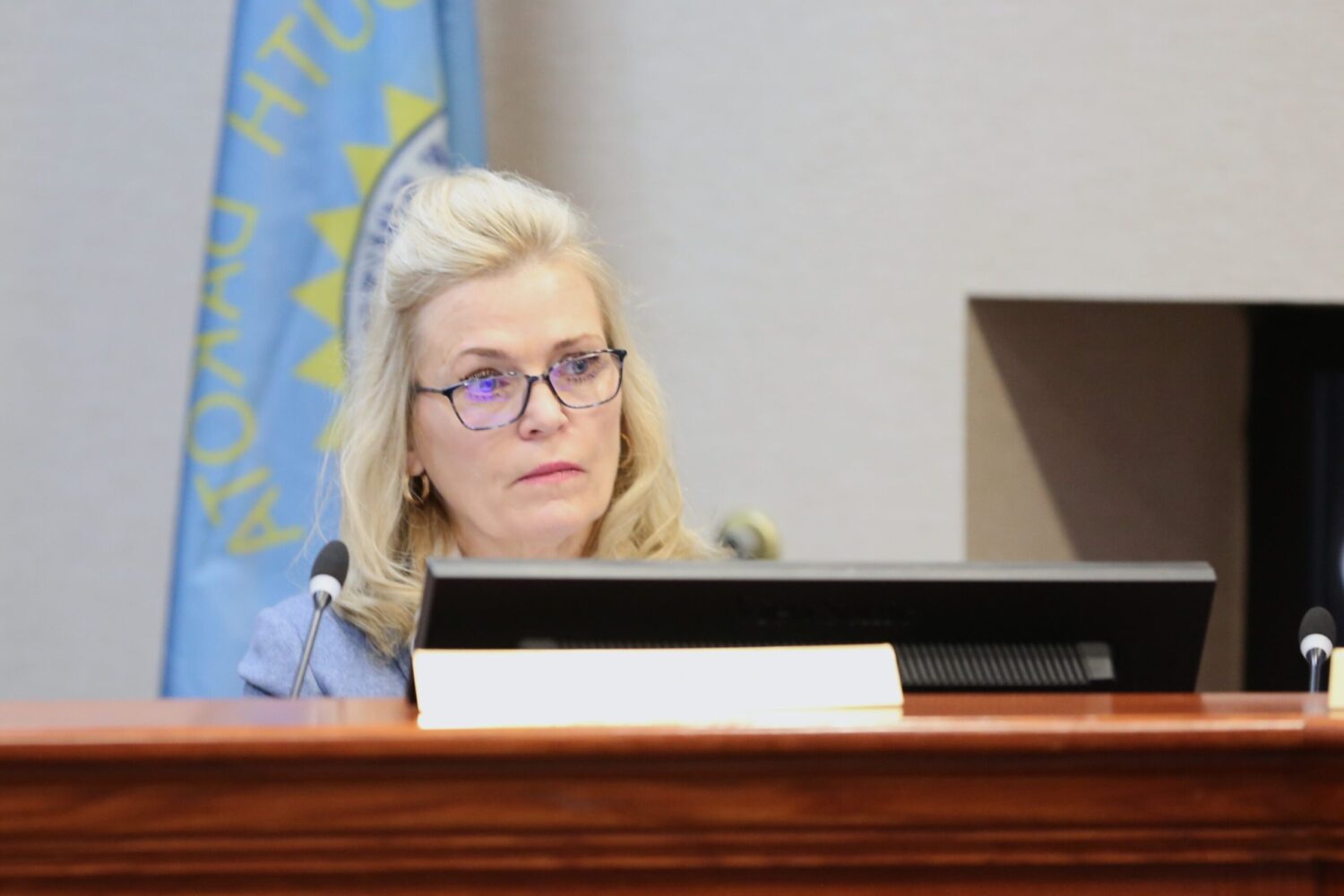A marijuana plant at the Dakota Herb grow operation near Tea, South Dakota. (Photo by John Hult/South Dakota Searchlight)
A recent legislative hearing left people involved in the state’s medical marijuana businesses paranoid, and it wasn’t because they had been sampling their own products.
A meeting of the Medical Marijuana Oversight Committee turned into an assault on the program that the state’s voters approved in 2020 and the state implemented in 2022. The roster of speakers was a travel agent’s dream come true with a law enforcement officer from Missouri, an emergency medicine doctor from Colorado, a professor from Oklahoma, an addiction specialist from Colorado and the Sioux Falls school superintendent.
All of them were on hand to warn against the evils of marijuana in general and in particular how those evils can flourish thanks to a medical marijuana program.
Emmett Reistroffer of Genesis Farms Cannabis Company in Sioux Falls said it looked like a concerted effort to restrict or repeal the state’s medical marijuana program. Rep. Josephine Garcia, a Watertown Republican and chairwoman of the committee, didn’t like Reistroffer’s conclusion.
In a South Dakota Searchlight story, Garcia said the meeting’s agenda was set “to follow what was not done when this program was first rolled out. That was my only intention here. If you’re insinuating that me, as the chair, have said something or orchestrated something, I have not done that. It is awareness for the public. This is a public safety issue.”

With Garcia’s Murderers’ Row of anti-marijuana speakers, it sure seems like an orchestrated effort. Or perhaps it’s the first salvo in a battle to overturn the will of the voters.
Those of us who can remember back to the 2020 election recall that the virtues and pitfalls of medical marijuana were pretty well litigated. In the end, voters chose to approve the program with 70% of the vote. Garcia’s excuse that these issues have never before been discussed shows a frightening lack of memory or a penchant for being disingenuous.
Those of us who can remember back as far as 2017 know why Reistroffer and his colleagues in the medical marijuana community are so upset. During the legislative session that year, it only took a few days for lawmakers to dismantle Initiated Measure 22, despite it being approved the previous November by South Dakotans with 52% of the vote.
Sold to voters as an anti-corruption measure, IM 22 was quite likely unconstitutional and its implementation had been halted by a judge. Lawmakers, however, weren’t content to let the case play out in court. Working at an unusually fast pace, it took just over a week for lawmakers to dismantle IM 22, implementing some parts of the measure via legislation while jettisoning others.
Oversight committee testimony sends ‘shock wave’ through SD medical marijuana industry
The ease with which legislative leaders explained away their disregard for the will of the voters has not been lost on the people who organize ballot questions. It was a ballot question that gave South Dakota its medical marijuana program.
In some cases, ballot initiative organizers have turned to state constitutional amendments rather than initiated laws because they know that it will be at least two years before lawmakers can put the issue back on the ballot. In the meantime, the Legislature can’t mess with a constitutional amendment the way they did with IM 22.
Whether Garcia likes it or not, marijuana dispensaries are part of the state’s medical community. It’s hard to imagine surgeons, chiropractors or nurses receiving such shoddy treatment at the hands of a legislative committee.
Anyone with an agenda that includes getting rid of the state’s medical marijuana program may find that there’s not much appetite for such a change. Abolishing the program would mean that all the licensing work done by local governments would be wasted. It would mean the shuttering of small businesses that were created in the wake of the 2020 election. It would mean a lack of relief for the 16,477 people who hold patient cards. It would mean once again overturning the will of the voters.
Want more commentary? Get it delivered free to your email.


